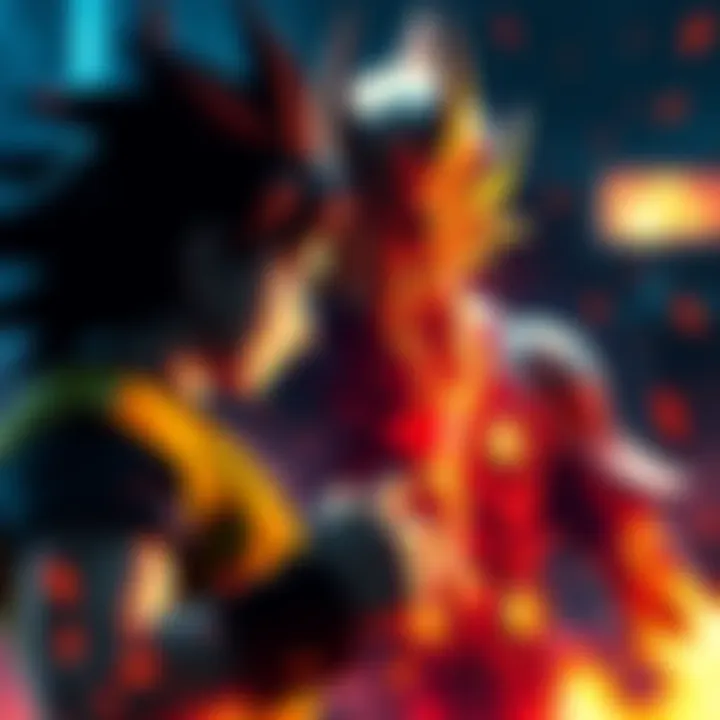A Surprising Twist in the Dragon Ball Universe | The MMORPG Scene Unveils Disappointment
Edited By
Nina Rossi

A Unique Offering in Gaming's Landscape
A new Dragon Ball game, blending elements from Dead by Daylight, has made headlines but failed to capture players’ attention. Released recently, it peaked at just 4,000 concurrent players on Steam, raising eyebrows about its viability in gaming markets.
Players Share Their Experiences
Feedback from the gaming community indicates a significant disinterest, with many players labeling it as lackluster. A user stated, "It was dead on arrival," highlighting its steep decline in player numbers post-launch. Even with crossplay and improved graphics, the excitement quickly faded.
Why Were Expectations High?
The game was initially described as having a good premise. However, "it felt low effort," lamented one player. Expected features, such as competitive gameplay, quickly crumbled under the weight of poor matchmaking and monetization issues. Many criticized the reliance on gacha mechanics for gameplay advantages.
Key Issues Faced
Three main themes emerged from user comments regarding the game:
Player Engagement: The game saw engagement drop sharply, as explained by one commenter, "People can't talk about something nobody is playing."
Monetization Problems: Users pointed to issues like "pay-to-win mechanics," which further alienated potential players, making the gameplay experience frustrating.
Content Depletion: Engaging content post-launch was minimal. Many felt that the developers abandoned the game, exposing it to stale gameplay and repetitive arcs.
"The worst part was that the game's graphics improved over previous titles, but they just gave up on content and fixes," noted a disappointed fan.
Reflecting on the Missed Opportunity
Interestingly, the gaming community is still keen on collaborative gameplay draws, with even fan-made Roblox horror games achieving greater daily player counts. Yet, Dragon Ball's crossover attempt may have missed the mark by failing to sustain interest and offer compelling experiences.
Final Thoughts
Despite high hopes, many in the gaming community see this title as another failed venture in the expansive Dragon Ball franchise. Its underwhelming launch serves as a cautionary tale about gameplay promises not being met against fan expectations.
Key Takeaways
🔥 Only peaked at 4K players, signifying poor ongoing engagement.
💰 Heavy reliance on gacha mechanics pushed many players away.
💔 Content stagnation led to player abandonment and frustration.
This game may have started with potential, but in hindsight, its short lifespan reflects much about market trends and player expectations in modern gaming.
Anticipating the Future of Gaming Collaborations
There's a strong chance that developers will take note of the mixed reception to the Dragon Ball and Dead by Daylight crossover. Experts estimate around 60% of future games in similar markets will focus on community engagement and avoid excessive monetization tactics to attract players. As ongoing trends in gaming emphasize player retention, we may see a shift toward titles that prioritize enjoyable gameplay experiences over profit-driven mechanics. This could lead to the rise of games with more cooperative features, drawing lessons from both successful and unsuccessful launches in recent years.
Echoes from the Past: The Fall of Other Major Franchises
This situation mirrors the decline of major comic book games that once dazzled fans but faltered due to a lack of meaningful content and player engagement. Much like the anticipated but then forgotten superhero titles of the early 2010s, this Dragon Ball title demonstrates how even established franchises can stumble when they fail to meet fan expectations. The intricate balance between hype and substance remains crucial, reminiscent of roller coasters that promised thrilling drops but left riders feeling flat instead. Only time will tell if this latest misstep serves as a guiding lesson or just another moment lost in gaming history.
